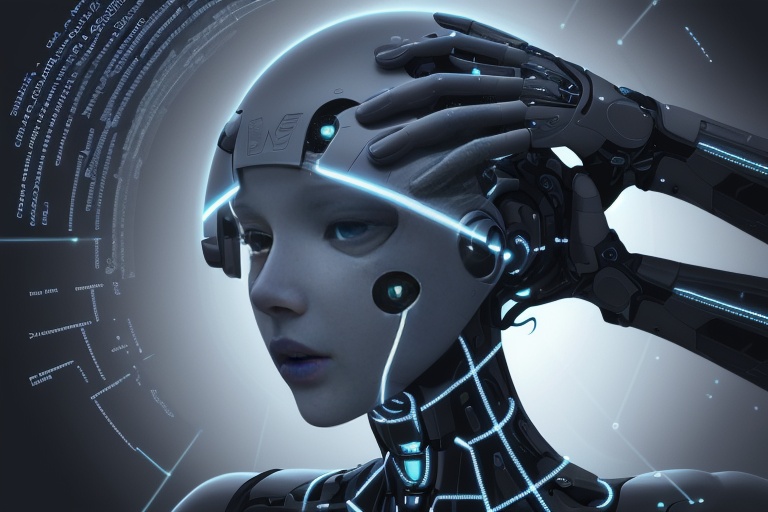Artificial intelligence (AI) represents an extraordinary shift in how we approach technology, problem-solving, and innovation. At the forefront of this revolution, AI has laid the foundation for machines and computer-controlled robots to execute tasks commonly associated with human intelligence. This remarkable branch of computer science aspires to replicate human behavior, creating machines capable of thinking, learning, and adapting.
Artificial intelligence (AI) represents an extraordinary shift in how we approach technology, problem-solving, and innovation. At the forefront of this revolution, AI has laid the foundation for machines and computer-controlled robots to execute tasks commonly associated with human intelligence. This remarkable branch of computer science aspires to replicate human behavior, creating machines capable of thinking, learning, and adapting.
Understanding Artificial Intelligence
AI can be sorted into three distinct categories based on aptitude and capability. The first, Narrow AI or 'weak AI,' performs intelligently within a narrowly defined and specific task. General AI, on the other hand, encompasses systems with the capacity to handle any intellectual task a human can. The third category, Super AI, points to a future where machines not only mimic but exceed human cognitive abilities, achieving self-awareness.
Currently, we interact predominantly with Narrow AI. Examples of this include self-driving cars that can navigate roads autonomously and voice recognition systems that understand and respond to our requests. Although these feats are impressive, they represent but the infancy of AI's potential impact.
The Evolution of AI
The journey of AI is not a product of the modern age alone. Its roots can be traced back to the 1980s when production-rule systems and expert systems marked the beginnings of industrial AI application. Neural networks and machine learning methodologies have since played pivotal roles in advancing AI capabilities.
Technological progress has been a significant driver of AI. Methods such as probabilistic and Bayesian techniques have been game-changers in machine learning, equipping us with the ability to sift through vast data sets and to analyze the semantics of raw text.
Even a decade ago, the progress of AI was met with a mix of fear and anticipation. Yet, before the term 'artificial intelligence' became ubiquitous, these machines had already begun to make a mark. The AI success stories that captured headlines—in chess, Go, and language translation—indicated that surpassing human competence in specific activities was not only possible but already occurring.
AI Across Industries
The future trajectory of AI development is set to cast a wide net, impacting industries across the board. The healthcare industry stands to witness a transformative change as AI brings forth new ways to monitor patients remotely, creates highly personalized treatment regimens, and diagnosis with unprecedented accuracy and speed—improving patient outcomes substantially.
India, with its significant share of the global population, faces immense challenges in healthcare accessibility. AI can play a critical role in addressing these challenges, offering solutions that were once the realm of science fiction.
The banking industry also benefits from AI's advancements. Chatbots now use AI to provide 24/7 customer support, and sophisticated algorithms can detect and prevent fraud. The transportation industry is on the brink of transformation as well, with autonomous vehicles poised to offer increased safety and efficiency.
However, the proliferation of AI is not without its challenges. Adoption of AI will likely trigger shifts in the job market, as automation becomes more prevalent and new roles demanding fresh skill sets emerge. The workforce will have to adapt to keep pace with the rapid advancements in AI technology.
Ethical Considerations of AI
Opportunities aside, the rise of AI also brings with it a suite of ethical concerns. Data privacy, the avoidance of bias in decision-making algorithms, and the maintenance of transparency are of paramount importance. Innovations will need to be matched with ethical practices to ensure that the development and use of AI systems are both responsible and beneficial to society.
Striking this balance will be a critical component of the AI narrative as institutions across the globe grapple with the implications of this powerful technology. Embracing its potential while conscientiously addressing the ethical quandaries will be necessary to fully harness the transformative power of AI.
Embracing the Future of AI
As AI technology marches forward, its influence grows ever more pervasive, reshaping industries as it goes. The integration of AI into daily life implies adapting to new tools, thought processes, and interactions. It also signifies the erosion of conventional boundaries, as machines become capable partners in domains from creative endeavors to complex problem-solving.
Preparing for this future means both recognizing AI's current state and anticipating its trajectory—looking beyond the horizon to the next set of challenges and achievements. It is an invitation to innovate, to consider, and to engage with the bold new world AI promises. Balancing innovation with careful consideration of ethical implications is not just the responsibility of technologists but a societal imperative.
AI's onward march signifies far more than technological advancement; it epitomizes a redefinition of possibility, demanding of us an eagerness to learn, to adapt, and to embrace the future with informed enthusiasm. As we stand on the frontier of this AI landscape, we must do so equipped with knowledge, foresight, and a commitment to steer this technology towards the betterment of all.
Information for this article was gathered from the following source.




